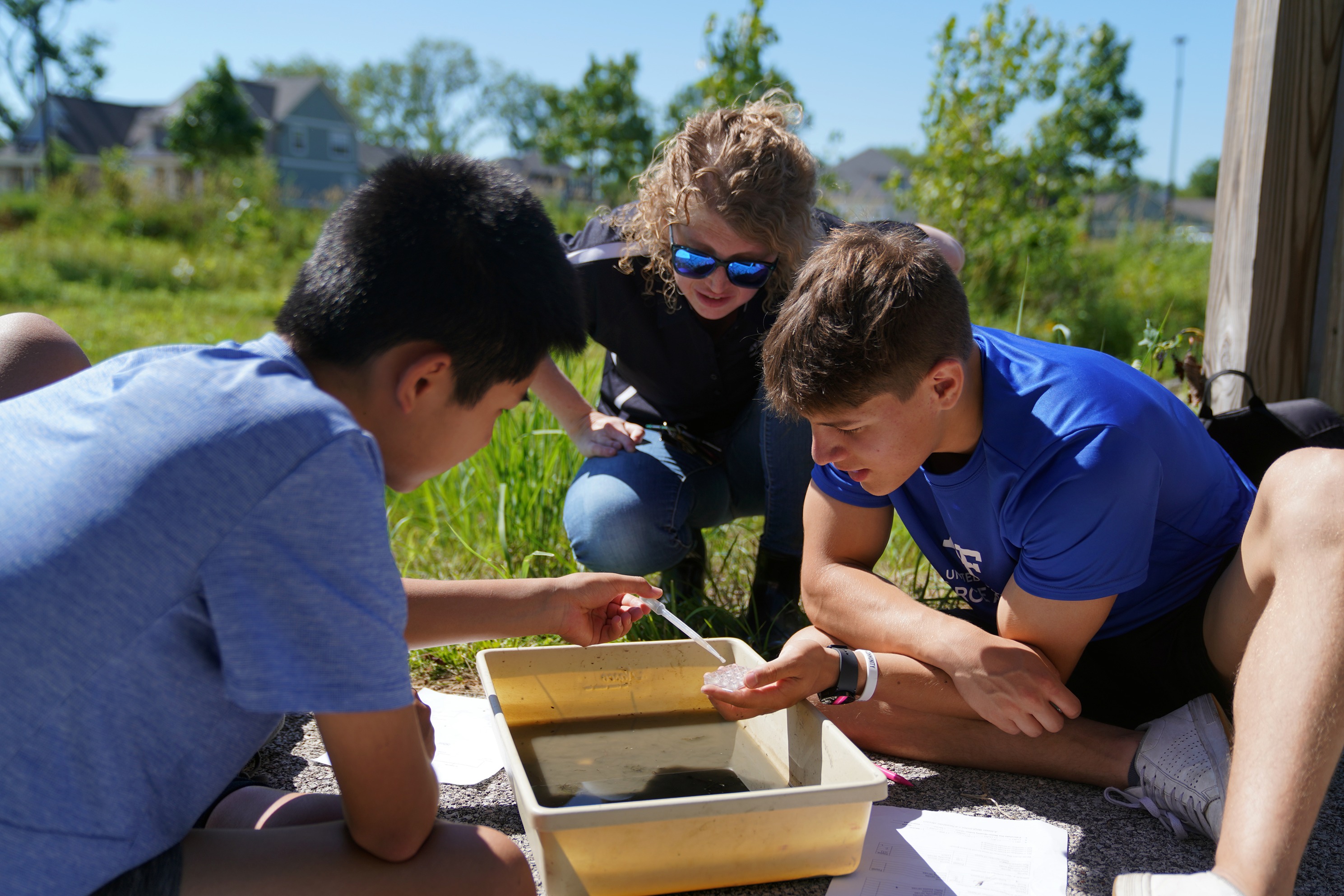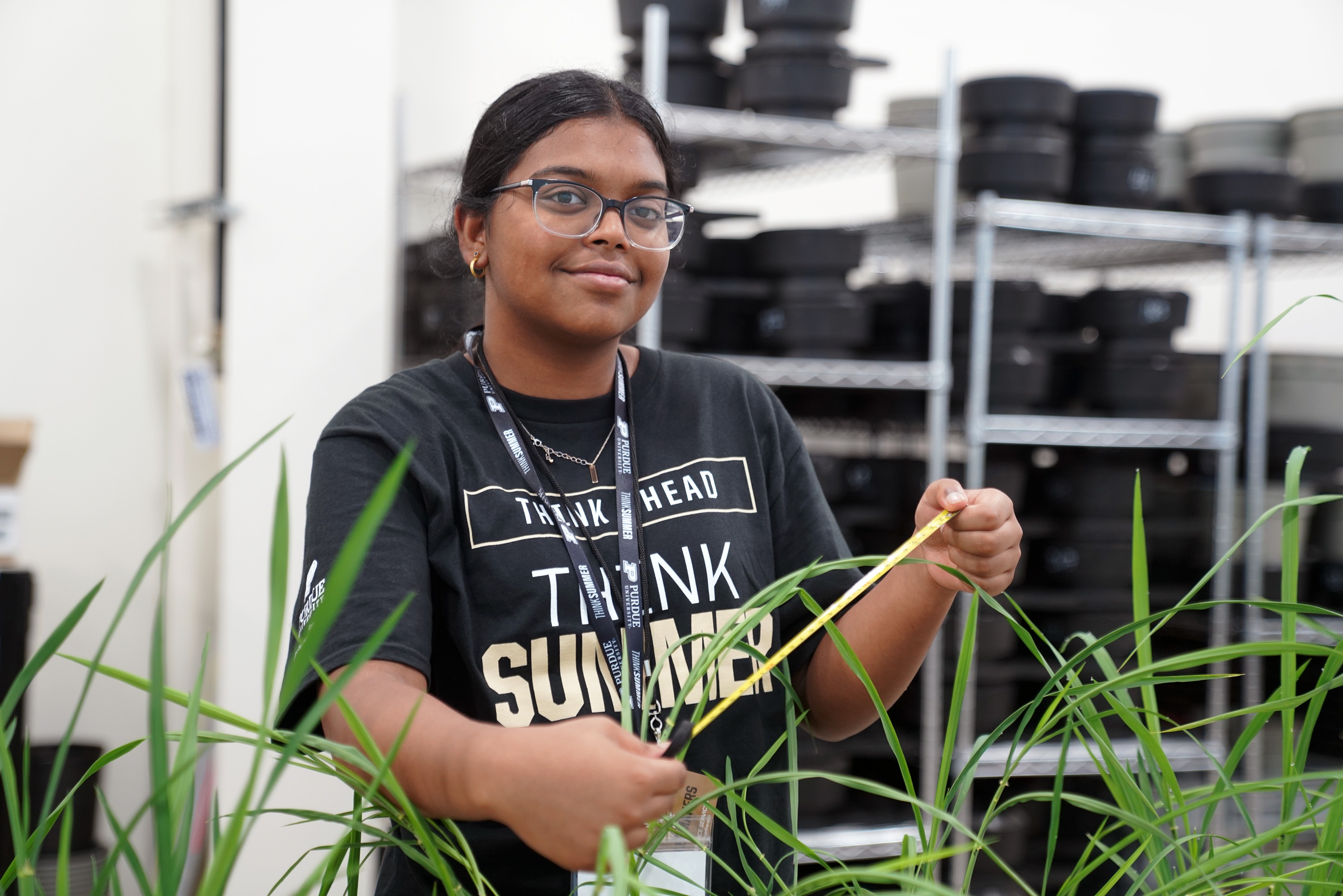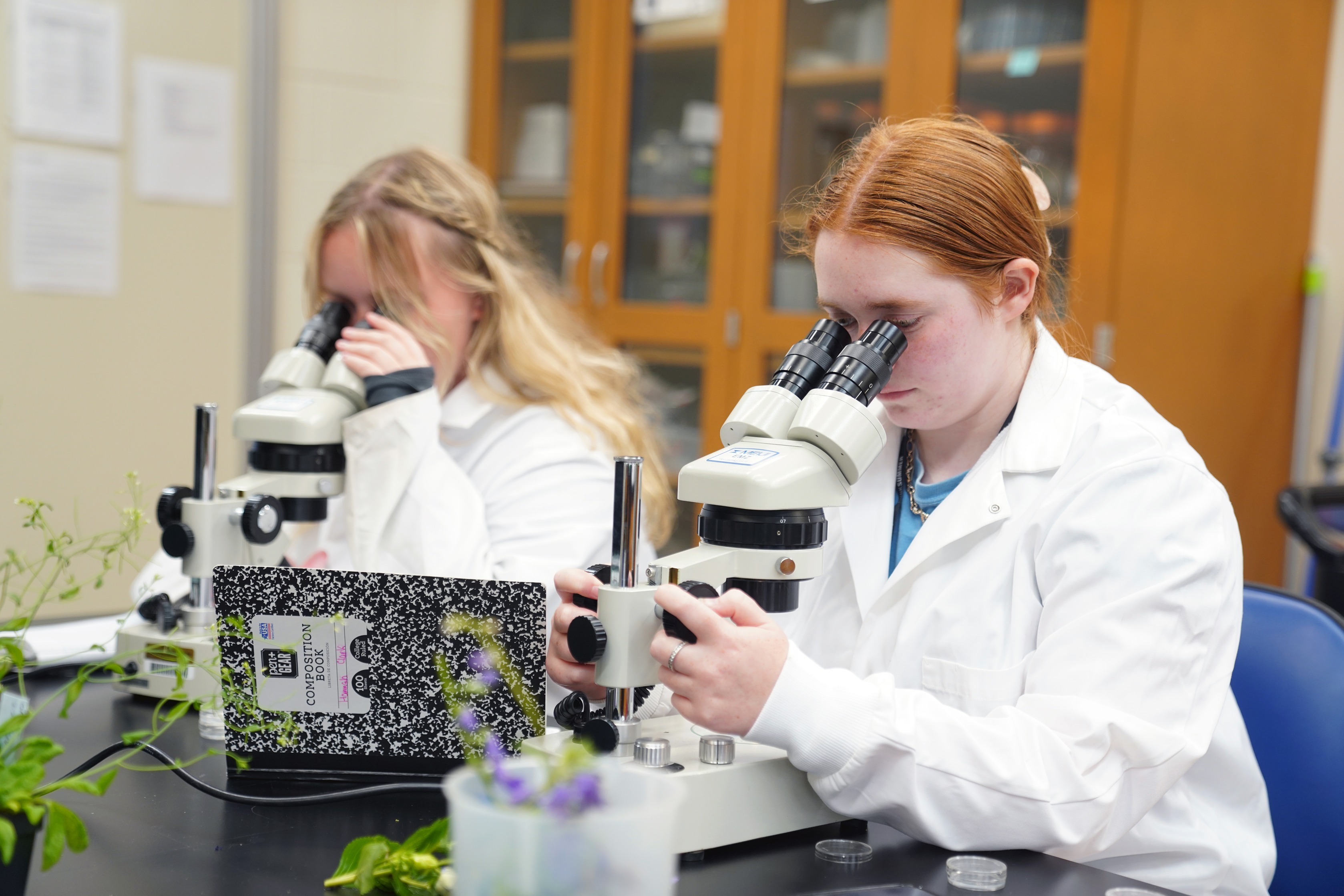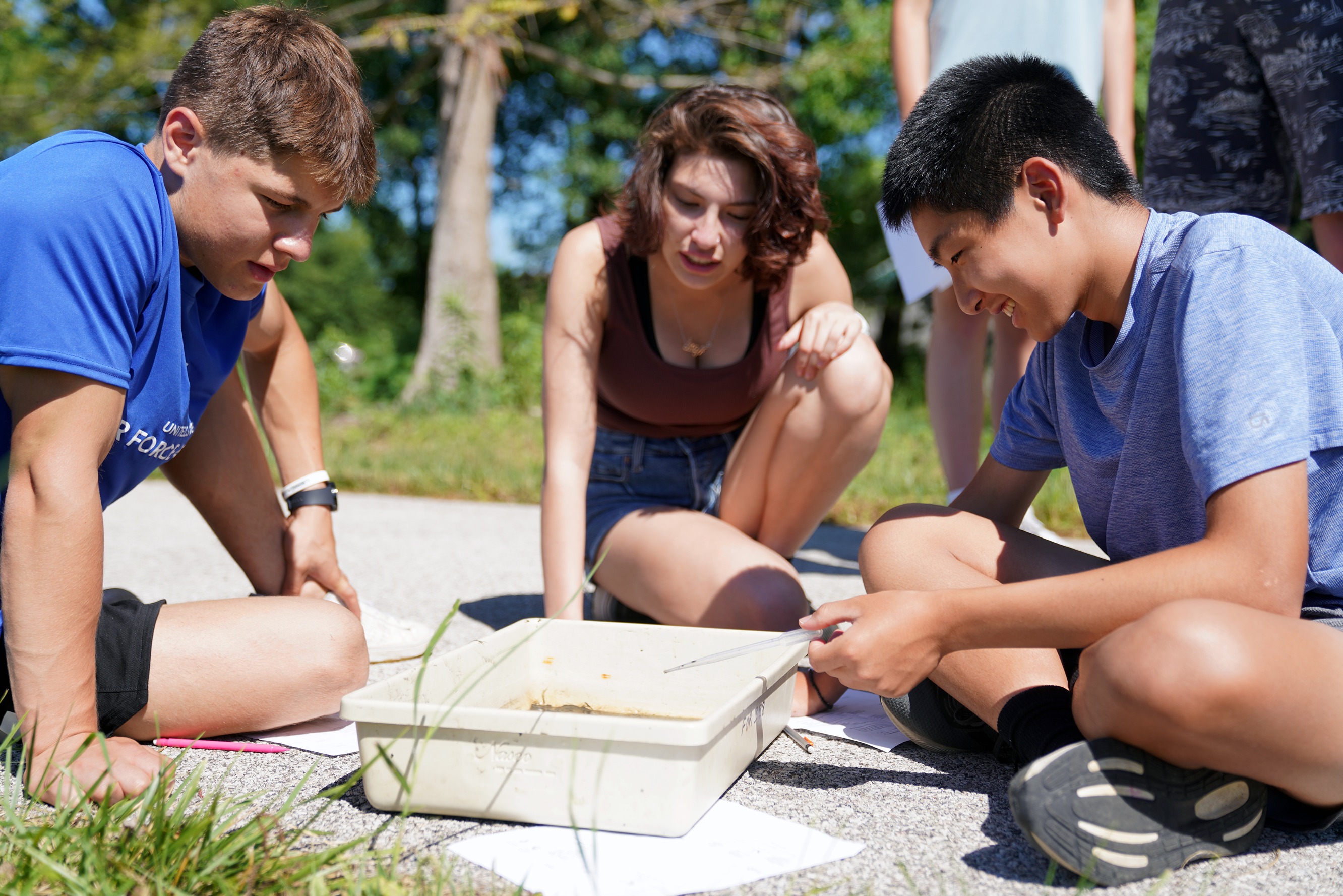Fields of Discovery: High school students join Purdue professors in research

Sitting near Todd’s Creek on a warm sunny day, a group of high schoolers, Purdue University graduates and professors observe samples collected from the creek water. The high schoolers are developing their research skills by examining the water for living organisms like leeches, ticks, larvae and snails. This is one of the sessions in the Agriculture Science Research Institute (ASRI).
Caitlin Proctor, assistant professor of agricultural and biological engineering and environmental and ecological engineering, sits down with the students and describes the process.
“All week, they've been working on drinking water and microbiology. We wanted them to examine ecology that they can actually see rather than measuring it on other instruments. So we are in streams looking at the benthic ecology. We kicked up some sediments from the bottom of a stream and we are identifying all of the organisms that we can see.”
Catherine, a high schooler from Ohio, explains that between playing in marching band and playing basketball and soccer, she enjoys studying in her math and science courses.
“I come from a heavily agricultural background,” Catherine says. “In my community, there's a lot of agricultural exposure, but none related to agricultural engineering. Because of ASRI, I’m able to take the aspects of agriculture and engineering that I enjoy and combine it into one field.”
Post doc research associate Cat Jones sits down with the high schoolers and leads them through the process. The high schoolers cheer when they discover an organism in the murky creek water.
“I love that ASRI helps the College of Agriculture expose more students to the diversity of STEM in agriculture and the possibilities of what they might be able to study, and get them excited about research before they even get to college.” — Caitlin Proctor
 Caitlin Proctor observes creek water samples with students.
Caitlin Proctor observes creek water samples with students. Over in the Ag Alumni Seed Phenotyping Facility (AAPF), assistant professor of agronomy Diane Wang is observing as the high school students measure plants on a conveyor belt.
“Right now, they are measuring plant architecture attributes, which they're all fully capable of doing. We start all of our students taking measurements that they can easily understand and over time, they build up confidence as well as their skill sets. I think the high school program is important because it demystifies the whole research landscape for younger students.”
Wang discusses how her lab has field sites in the Philippines and in Arkansas. She is interested in understanding genetic variation in crops in response to abiotic stresses like heat and drought. Her team has an eye on crop improvement for future climates— and in order for that work to continue, new thinkers and researchers need to enter and contribute. This is where ASRI comes in.
“I think it's important to get high schoolers exposed early to research,” Wang says. “When you're in high school, research can seem really daunting, or just completely unknown. What does the day to day look like? It's really unclear, right? Being able to have a hands-on experience is important because it can address these kinds of questions for them.”
During the week-long program, the high school students in the AAPF get to learn about plant anatomy and research procedures, among other developmental concepts.
 A high school student smiles and poses in the Ag Alumni Seed Phenotyping Facility.
A high school student smiles and poses in the Ag Alumni Seed Phenotyping Facility. Down the street in Whistler Hall, associate professor of botany and plant pathology Sharon Kessler works with high school students in her lab. The students are working on designing their own experiment involving sucrose alteration and how it affects pollen tube growth.
Emory, who is a high school student from Tennessee, spends much of her time in JROTC and her high school marching band, where she plays the synth. This week, however, she is a researcher at Purdue University and is developing an experiment with her teammates.
“My favorite thing I learned here so far is about plant biology. Learning about pollination has been so cool, because I didn't realize how complicated flowers can be.”
Kessler explains why she likes teaching the students about agriculture-specific research.
"I enjoy interacting with high school students and exposing them to the interesting world of pollination. It is fun to see their excitement when the experiment they design results in optimization of pollen germination. I hope that this program inspires the students to participate in undergraduate research when they go to college.” — Sharon Kessler
 High school students examine plant material under microscopes.
High school students examine plant material under microscopes.  High school students observe the contents of a water sample.
High school students observe the contents of a water sample. 





